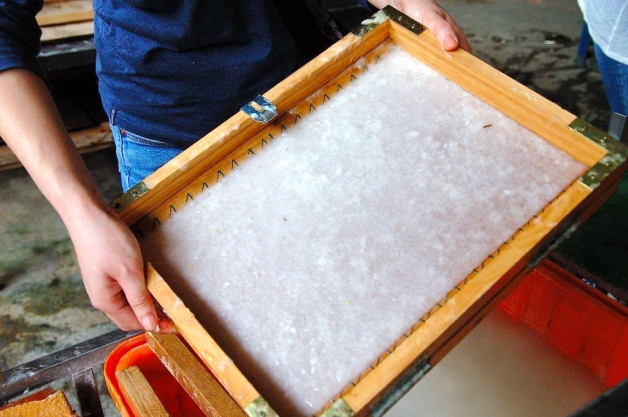Konigil Tourist Village and Meros Paper Mill
Konigil village is located 13 km from Samarkand. In the times of the Great Silk Road, there were many caravanserais here, but with its decline, the area fell into decay. However, thanks to the efforts of the Mukhtarov brothers, a once neglected 800 m territory turned into a country handicrafts center, at the same time providing jobs for suburban residents.
Under the shade of green trees, there is the tourist village of Konigil. It vividly demonstrates the culture, lifestyle, heritage, and customs of the Uzbek people through the works of local craftspeople. And the Meros Paper Mill in Samarkand is ready to offer its visitors its treasure in full.
Samarkand silk paper was spread worldwide by the caravans. It used to be a precious commodity on the Great Silk Road because it did not spoil if got wet and had a minimum shelf life made 400 years! By comparison, the maximum shelf life of modern manufactured paper is one century. In ancient times, silk paper was ordered for writing manuscripts, and nowadays it is used for their restoration.
Samarkand silk paper: the manufacturing process
The Meros paper factory in Samarkand shares its 8th-century technology with those interested. Visitors are taken away by the fascinating multi-step procedure involving only manual labor:
1 The twigs of the mulberry tree are selected when they are one year old.
2 The twigs should be pre-soaked for a day so that the peel is saturated with water and becomes elastic and easy to remove.
3 To make it soft, the removed peels, being thoroughly stirred, are boiled in a cauldron for 4-5 hours, until a homogeneous mixture is obtained.
4 The resulting mixture is crushed with a water mill for 9-10 hours.
5 The crushed raw material is mixed with water and aligned to the size of the future sheet with a grid.
6 The fibers interweave with each other, strengthening in the process of drying, and turning into a dense paper sheet. Excess water is removed by blotting with a cotton cloth.
7 The final stage is polishing with an agate stone, which removes all the roughness.
In the summer sun, a sheet of paper dries up in 3-4 hours, while in the winter time, it takes 3-4 days. No automated technology or chemicals, including bleaching agents, are used in the manufacturing of Samarkand's silk paper. Its natural yellowish shade not only gives the feeling of touching the vintage but is also more useful for the eyes because of the reduced contrast.
Be sure to pay attention to the souvenir shop directly at the factory. Here you can buy memorable gift cards, paintings, and notebooks in the national style. Moreover, you can enjoy the flight of imagination of masters offering to buy masks, dresses, and even bags made of paper! It is not only exotic but also quite a functional present - bags with a carrying capacity of 5 kg will serve for at least 3-4 years.
While reviving the ancient tradition of handmade paper, gradually, other areas of applied and decorative arts blossomed here: carpentry, pottery, weaving, and doll making.
Konigil Village: Eco-culinary master classes and tastings
Charkhpalak, a water mill that was formerly used to create paper and acted as an atmospheric decoration of the area, is now also used for grinding grain. You can watch the flour being milled, and then how the legendary Samarkand flatbread and the ruddy flaky somsa are cooked from it in the tandyr oven right away and offered to you. And you will see all the details of the culinary process.
Konigil tourist village is ready to take you for a walk to the rice, flax, sesame, and cotton fields and show you the ancient technology of making vegetable oil. The village has authentic teahouses where Samarkand people treat travelers to traditional tea and pilaf, rice and oil for cooking of which were grown and produced here. For dessert, along with oriental sweets, you can taste the fruits that have just been picked from the fragrant gardens.
Technology and the bustle of the modern world recede here. Enjoy the coolness and comfort of the peaceful surroundings and the murmuring of the River Siab, around which Samarkand has grown. And even the sounds of the national music played live on traditional instruments seem to complement the rhythms of nature itself.









